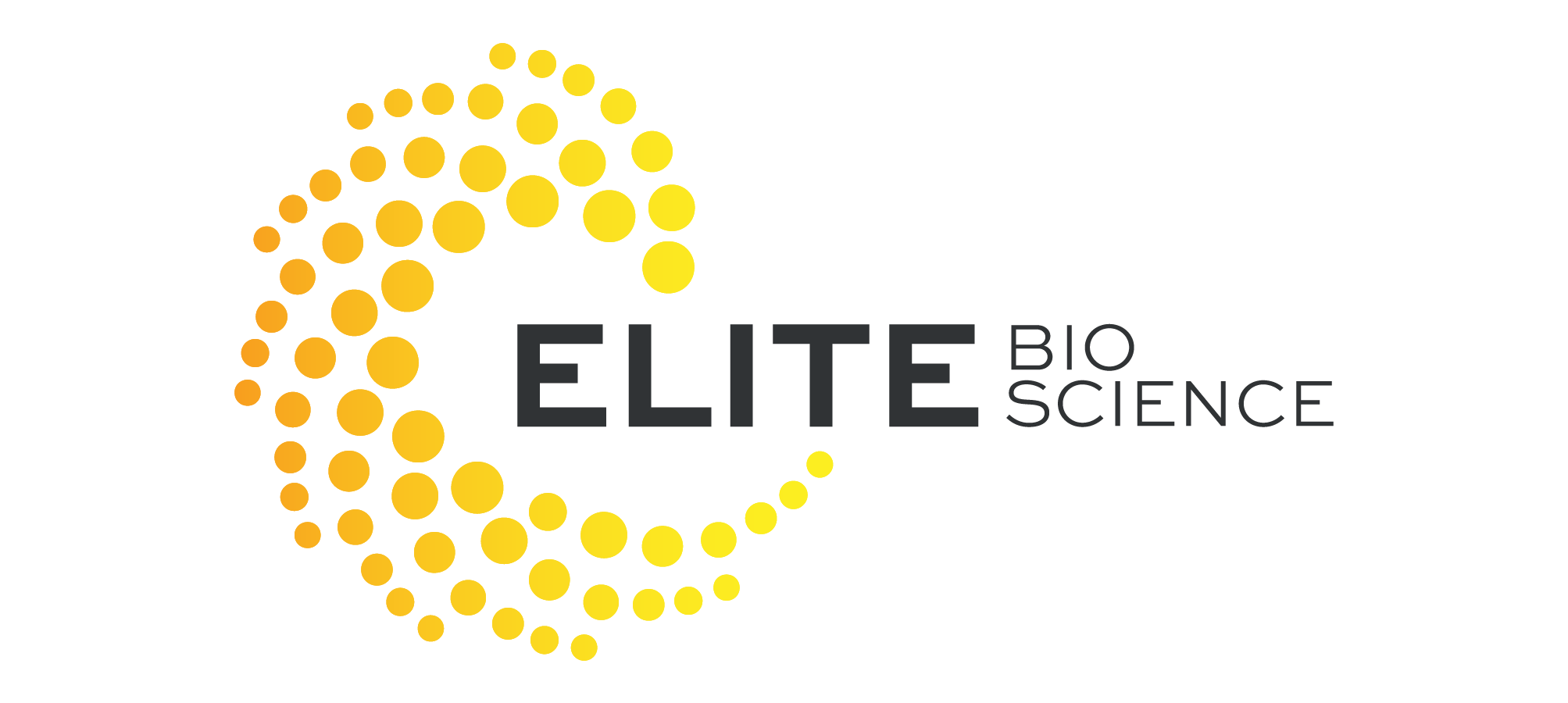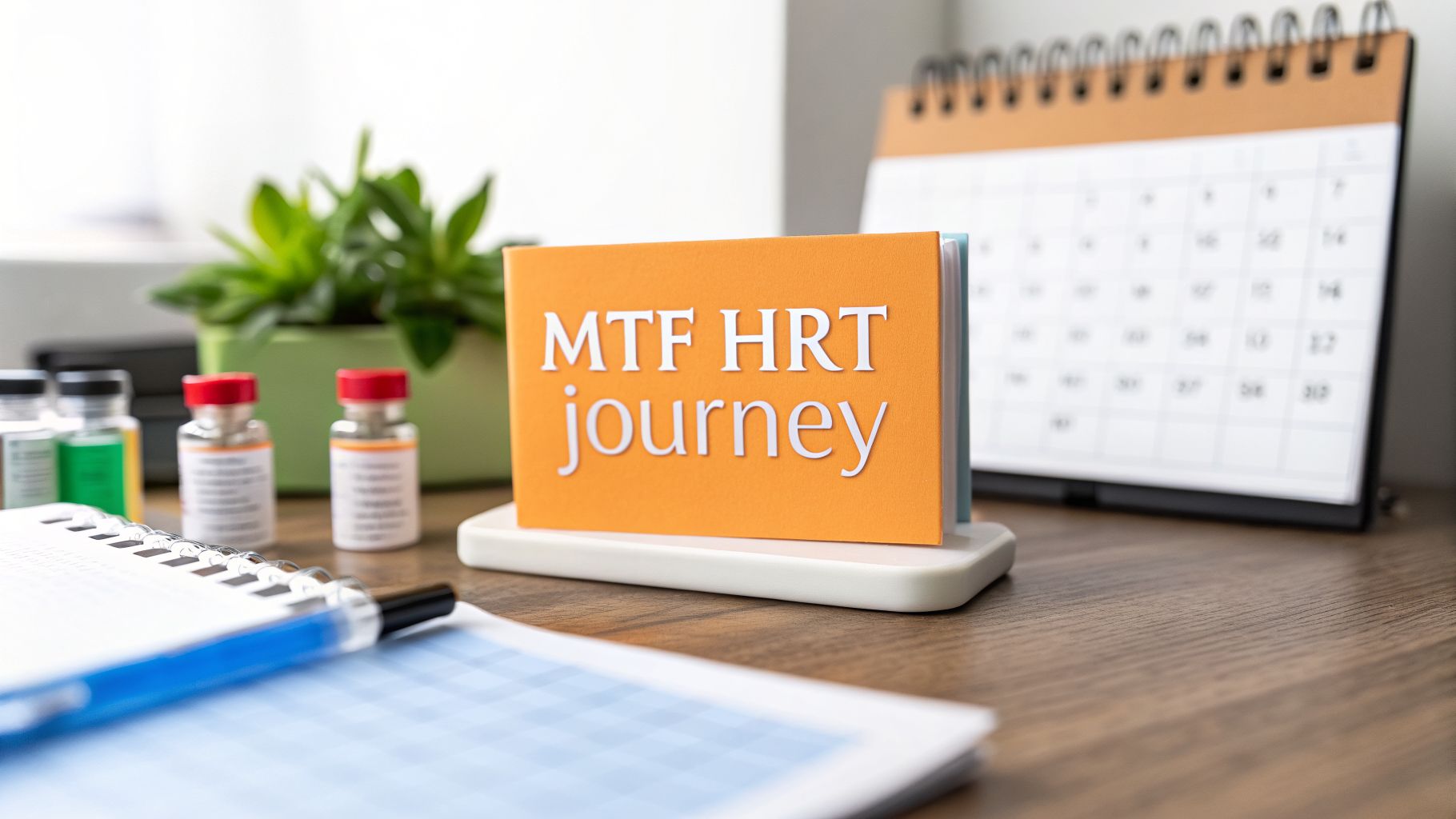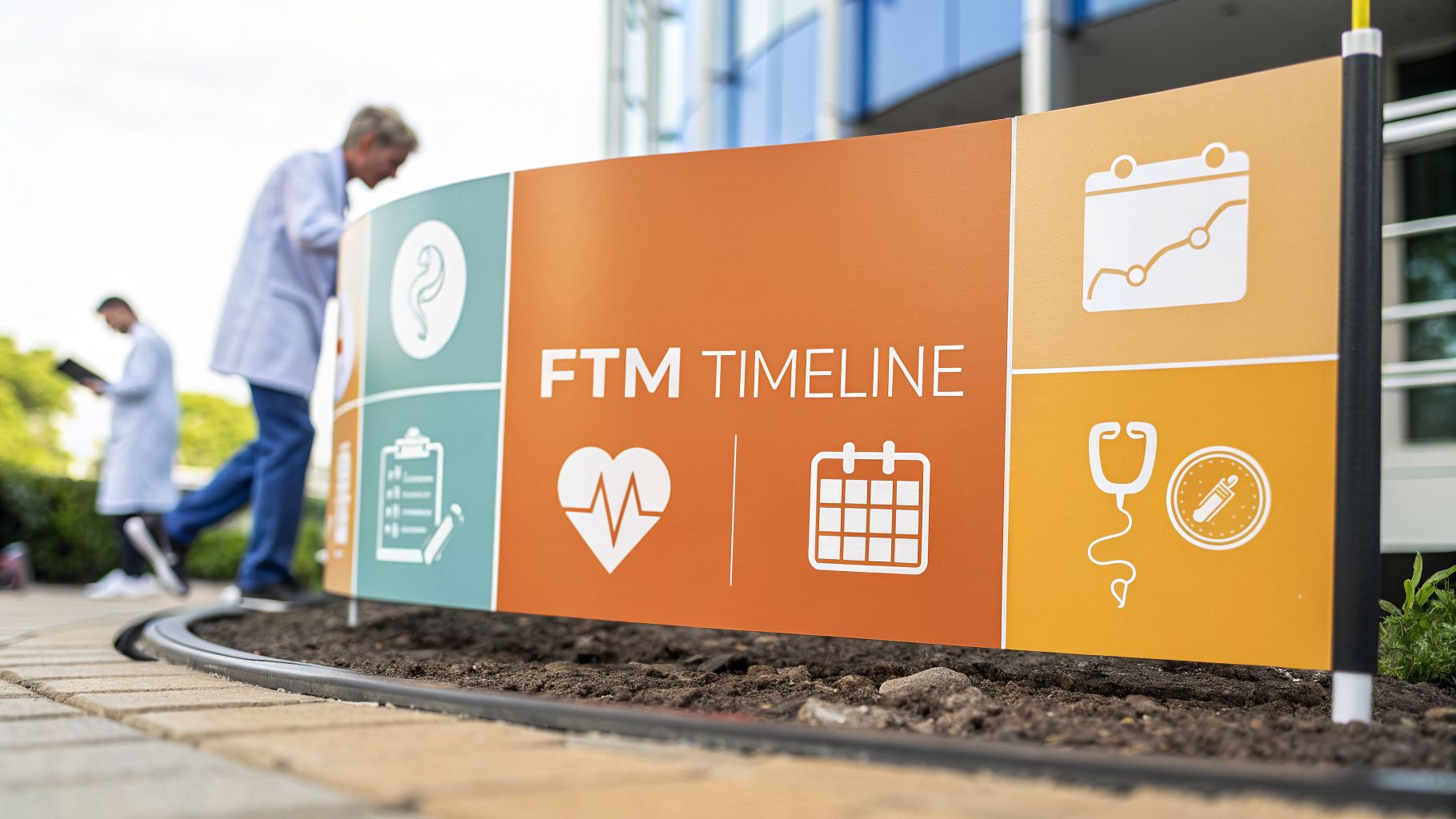Pregnenolone vs DHEA A Guide to Hormonal Health
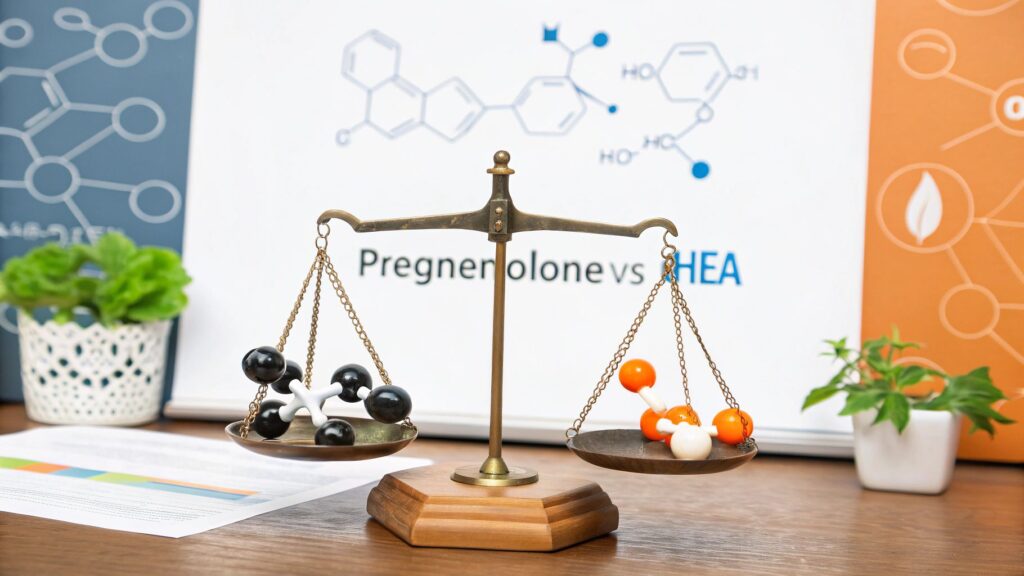
When you're trying to decide between pregnenolone and DHEA, it really comes down to their position in your body's hormonal flowchart. Think of pregnenolone as the master hormone geared toward cognitive function, while DHEA is a more specialized product directly linked to physical energy, vitality, and sex hormone balance. Your choice hinges on whether you're targeting mental clarity or physical performance.
Pregnenolone vs DHEA: Understanding the Core Difference
In the world of hormone optimization, pregnenolone and DHEA come up constantly. While they're definitely related, they are absolutely not interchangeable. Getting a handle on their distinct jobs is the first step to figuring out which one, if any, aligns with your health goals.
Pregnenolone gets called the "grandmother hormone" for a good reason—it sits right at the top of the steroid hormone production line. Your body makes it directly from cholesterol, and from there, it becomes the raw material for almost every other steroid hormone, including DHEA, progesterone, cortisol, testosterone, and estrogens. Because it's so high up the chain, its effects can be quite broad, influencing different pathways depending on what your body signals it needs.
DHEA (dehydroepiandrosterone), on the other hand, is made directly from pregnenolone. It's one step down the ladder and is mostly known for being the intermediate that gets converted into androgens (like testosterone) and estrogens. This gives it a much more direct impact, with effects you can often feel in areas like physical energy, libido, and body composition.
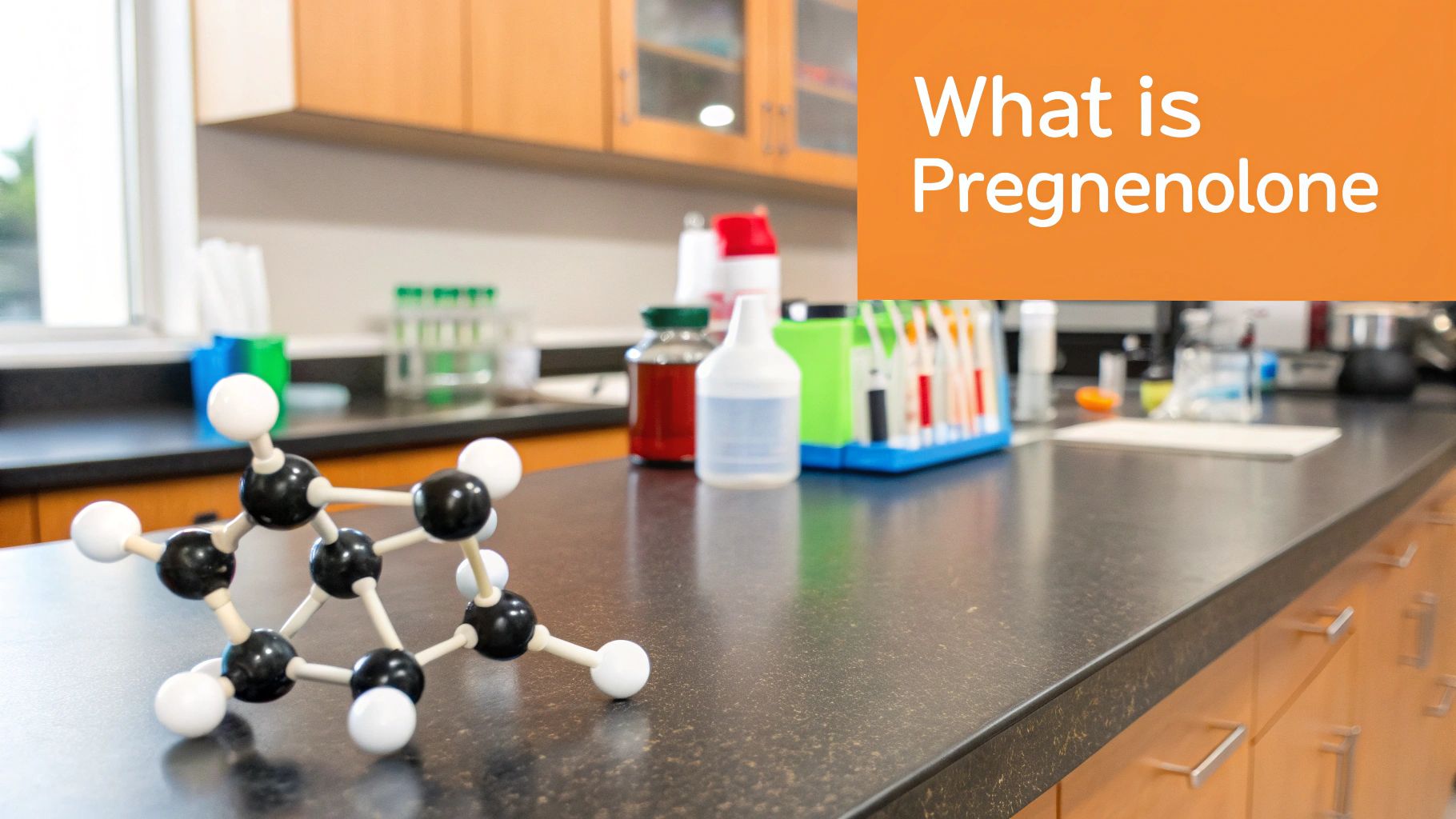
Key Functional Distinctions
The biggest difference is where each one primarily works its magic. Pregnenolone is celebrated as a neurosteroid, which means it has a major impact on brain function. People often turn to it for enhancing memory, lifting mood, and promoting a feeling of mental sharpness.
DHEA is much more connected to the physical side of things. It's a workhorse for adrenal health, helps support the immune system, and plays a role in maintaining muscle mass and bone density. Its conversion to sex hormones also makes it a key player in sexual health and overall vitality.
Key Insight: I often tell clients to think of pregnenolone as the strategic CEO of the hormone factory, setting the overall direction. DHEA is more like a specialized department head, directly overseeing the production of sex hormones. One provides broad, systemic guidance, while the other executes a more specific, targeted job.
Hormonal Decline With Age
Both hormones drop as we get older, but they don't follow the same path. As the biochemical precursor, pregnenolone levels tend to decline steadily. Research shows that pregnenolone concentrations, which peak in our early twenties, fall by about 50% by the time we hit age 70.
DHEA's decline is far more dramatic. Its levels start higher but then plummet, dropping by a staggering 80-90% in older adults. You can explore more about these distinct hormonal aging patterns on Mordor Intelligence. This steep drop-off is precisely why DHEA is so commonly supplemented to combat age-related complaints.
To make this crystal clear, here’s a quick summary of their core differences.
Pregnenolone vs DHEA At-a-Glance Comparison
This table breaks down the fundamental distinctions between these two powerful hormones, giving you a quick reference for their roles and applications.
| Attribute | Pregnenolone | DHEA |
|---|---|---|
| Primary Role | "Mother" precursor to all steroid hormones | Precursor mainly to sex hormones (testosterone, estrogen) |
| Main Benefits | Cognitive function, memory, mood, brain health | Energy, libido, muscle mass, bone density, immunity |
| Action Pathway | Indirect and broad (converts as needed) | More direct conversion to androgens and estrogens |
| Area of Impact | Primarily neurological and systemic | Primarily physical and metabolic |
| Common Use Case | Supporting mental clarity and reducing stress | Addressing age-related decline in energy and vitality |
Ultimately, understanding these nuances is key. One isn't inherently "better" than the other; they simply have different jobs. Your personal biochemistry and health goals will determine which one is the right tool for the task.
Mapping the Steroid Hormone Pathway
To really understand the difference between pregnenolone and DHEA, you have to look at how they're made inside the body. Think of it like a production line. Your hormonal system follows a specific sequence, with one hormone acting as the raw material for the next. This entire manufacturing process is called the steroid hormone pathway.
Everything kicks off with cholesterol. Despite its bad rap, cholesterol is the essential starting block your body needs to create pregnenolone. This first step turns a basic fat molecule into the foundational hormone from which all other steroid hormones are built.
From there, the pathway splits, giving your body different options depending on what it needs at that moment.
Pregnenolone: The "Mother Hormone"
Pregnenolone sits right at the top of this hormonal hierarchy, which is why it's often called the "mother hormone." Because it's the very first one produced from cholesterol, it has the potential to become several different things, not just DHEA.
Your body uses specific enzymes to direct pregnenolone down various routes based on its current demands. Here are the main options:
- It can be converted into progesterone, which is vital for everything from reproductive health to mood stability.
- It can follow the path to DHEA, which then primarily creates the sex hormones.
- It can also be used to produce cortisol, the body's primary stress hormone.
This incredible flexibility is what makes pregnenolone so unique. It’s like the "undifferentiated stem cell" of the hormone world—it can become whatever the body needs most.
Key Takeaway: When you supplement with pregnenolone, you're essentially giving your body a stock of raw materials and letting it choose how to use them. The effects are often broader and less targeted than taking a hormone that's further down the production line.
This visual helps place DHEA within this complex biochemical family, showing its distinct molecular structure.
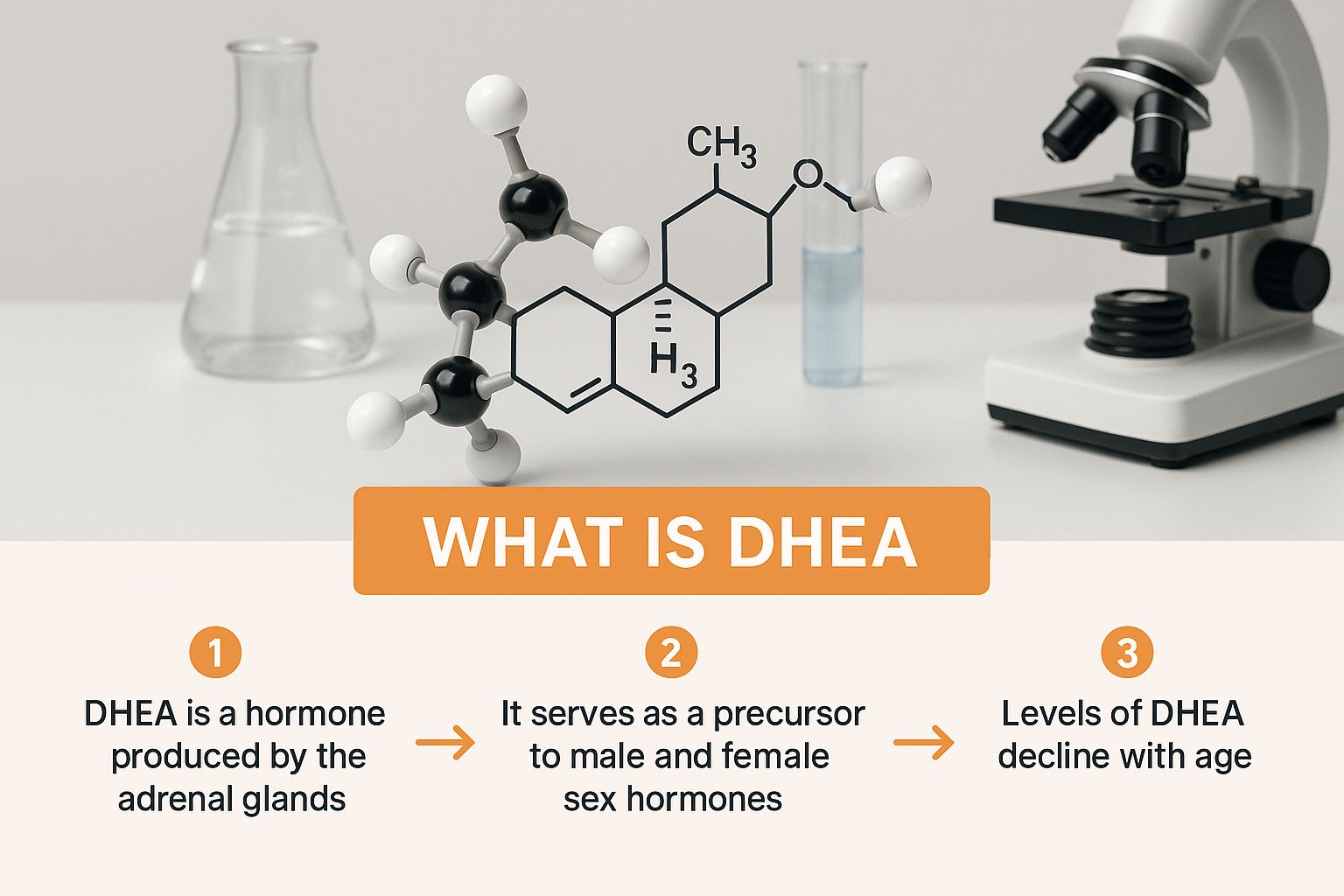
As you can see, DHEA is a specific product that comes from a much larger hormonal manufacturing process that starts with cholesterol and pregnenolone.
DHEA: A More Direct Route to Sex Hormones
Once pregnenolone becomes DHEA, its job gets much more specific. DHEA’s main purpose is to act as the direct precursor to androgens (like testosterone) and estrogens. Think of its pathway as a more direct road to producing the hormones we associate with vitality, muscle mass, and libido.
This is a crucial distinction when comparing pregnenolone vs. DHEA. While pregnenolone gives the body multiple choices, DHEA is already on a set path: boosting testosterone and estrogen levels.
Here's the simplified flow:
- Cholesterol is the starting point.
- It's converted into Pregnenolone (the "mother hormone").
- Pregnenolone can then be converted into DHEA.
- DHEA is then converted into androgens (Testosterone) and estrogens (Estradiol).
This hierarchy is why their effects can be so different. Taking DHEA skips the earlier decision-making steps and directly signals the body to make more sex hormones. This can be a very direct and effective approach for targeting low testosterone or estrogen, but it lacks the broader systemic flexibility of pregnenolone.
Knowing your own hormonal baseline is absolutely critical here. Without it, you're just guessing. To get a clear picture of your levels, comprehensive testing is non-negotiable. Our guide to the DUTCH hormone test offers a great overview of how you can get that detailed snapshot.
Comparing Benefits for Brain and Body
So, when you're standing at the crossroads of pregnenolone and DHEA, the best path forward really depends on what you're trying to achieve. Are you looking to sharpen your mind and find a more stable mood? Or is your focus on cranking up your physical energy and overall vitality? Each of these powerful hormone precursors has its own distinct specialty.
Think of it this way: Pregnenolone is widely known as a neurosteroid, which is just a fancy way of saying its most impressive work happens inside the brain. DHEA, on the other hand, makes its presence felt more physically—influencing things like muscle mass, libido, and energy levels by converting into key sex hormones.
Pregnenolone: The Brain-Boosting Neurosteroid
Pregnenolone truly shines when it comes to cognitive function. It has a direct line to the brain's communication network, influencing crucial neurotransmitter systems like GABA and NMDA receptors. These are the very systems that govern how we learn, remember, and regulate our moods, making pregnenolone a go-to for anyone seeking a mental edge.
Its benefits really zero in on a few key areas of brain health:
- Memory and Learning: Pregnenolone is thought to support synaptic plasticity—the brain's incredible ability to forge and reinforce connections between neurons. This is the bedrock of forming and recalling memories.
- Mood Stabilization: By interacting with GABA receptors, which have a natural calming effect, pregnenolone can help dial down feelings of anxiety and promote a greater sense of emotional balance.
- Mental Clarity and Focus: Many people find that optimizing their pregnenolone levels helps cut through mental haze. If you're constantly struggling with focus, understanding what causes brain fog can offer a much clearer picture of what might be going on.
A Note on Neuroprotection: Research also points to pregnenolone's potential role as a bodyguard for our brain cells. It's believed to help build myelin, the protective coating around nerve fibers that ensures lightning-fast communication throughout the brain, which is fundamental for long-term neurological health.
This growing awareness of its cognitive perks has fueled a pretty significant market. The global demand for pregnenolone supplements was valued at roughly USD 230.7 million in 2025 and is expected to climb as more people look for natural ways to support their brain as they age. You can dive deeper into these pregnenolone market trends on Data Insights Market.
DHEA: The Catalyst for Physical Vitality
While pregnenolone is working its magic behind the scenes in your brain, DHEA’s effects are often much more noticeable in your day-to-day physical experience. Since it’s a direct precursor to both testosterone and estrogen, its benefits are closely tied to the roles these hormones play in our physical and metabolic health.
People often turn to DHEA to counteract the natural decline that comes with age, looking for that tangible boost in energy and physical well-being.
Side-by-Side: Brain vs. Body
To make the choice crystal clear, let's put these two head-to-head. This direct comparison really highlights where each one excels.
| Feature Area | Pregnenolone | DHEA |
|---|---|---|
| Primary Target | Central Nervous System (Brain) | Adrenal Glands, Muscle, Bone, Skin |
| Main Cognitive Effect | Directly enhances memory, clarity, and mood | Can indirectly improve mood via hormonal balance |
| Main Physical Effect | Minimal direct physical effects | Boosts energy, libido, and muscle mass |
| Mechanism of Action | Modulates neurotransmitters directly | Converts into testosterone and estrogen |
| Best For… | Addressing brain fog and cognitive decline | Combating physical fatigue and loss of vitality |
The table really tells the story: pregnenolone is for the mind, and DHEA is for the body.
Someone frustrated by memory lapses or mental fog would probably find pregnenolone to be the more direct solution. In contrast, a person feeling run down, with low energy and declining strength, would likely get more bang for their buck with DHEA.
The trick is to match the supplement to the symptom. This is where the whole pregnenolone vs. DHEA debate gets practical. Taking pregnenolone for a physical issue like low libido probably won’t be as effective as DHEA, which directly fuels the hormones governing sexual function. Likewise, using DHEA to clear up brain fog is a roundabout strategy compared to pregnenolone’s direct neurosteroidal action. Your personal goals should always be the guide, but a conversation with a healthcare professional who can look at your specific hormonal profile is the essential final step.
Navigating Safety, Dosing, and Side Effects
When you're considering supplementing with powerful hormone precursors like pregnenolone or DHEA, you absolutely have to take a close look at their safety profiles. Yes, they’re produced naturally in the body, but adding them from an outside source requires a thoughtful, careful approach. The entire point is to restore balance, not to create a whole new set of problems.
The core difference in safety between pregnenolone and DHEA really boils down to how they convert hormonally. DHEA’s more direct route to sex hormones means its side effects are often more noticeable and predictable, especially for women. Pregnenolone, being a step further back in the cascade, tends to have a subtler, though still very real, impact.
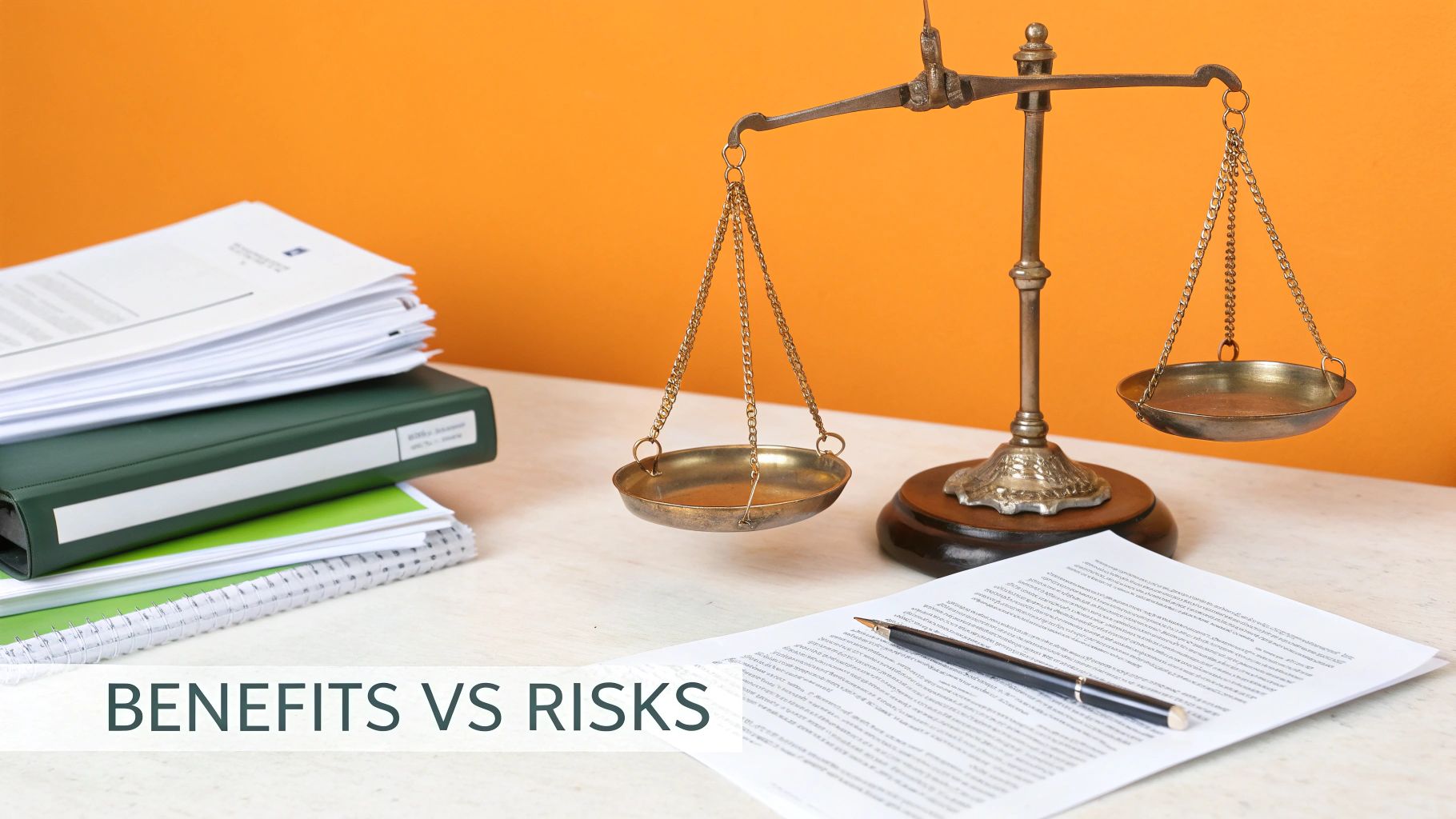
DHEA Side Effects: The Androgenic Impact
Because DHEA so easily converts into androgens like testosterone, many of its potential side effects are directly related to having too much of these "male" hormones. This can be exactly what a man with low testosterone is looking for, but for women, it can cause some unwelcome issues. These effects are almost always dose-dependent—the higher you go, the more likely you are to see them.
Common androgenic side effects include:
- Oily Skin and Acne: An uptick in androgens can kick your oil glands into overdrive, leading to breakouts, particularly along the jawline and back.
- Mood Changes: Some people find they become more irritable, aggressive, or just emotionally volatile when taking DHEA.
- Hair Changes: For women, this can show up as unwanted facial hair (hirsutism). Paradoxically, for both men and women, it can sometimes trigger hair loss on the scalp, similar to male pattern baldness.
For men, it's also worth noting that very high doses can sometimes lead to an over-conversion into estrogen, which might cause side effects like breast tenderness. It's a perfect example of the delicate hormonal tightrope the body is constantly walking.
Pregnenolone Side Effects: A Gentler Profile
Generally speaking, pregnenolone has a milder side effect profile. This is because your body has more say in what it becomes; it isn't automatically shuttled down the androgen pathway. Instead, the body can direct it to make progesterone, cortisol, or other hormones based on what it actually needs at that moment.
But "gentler" certainly doesn't mean "risk-free." The most common issues I see with pregnenolone are almost always related to taking it at the wrong time or at too high a dose.
Important Note: One of the most frequently reported side effects of pregnenolone is insomnia or feeling "wired" and overstimulated. This is a classic sign of taking it too late in the day. Because it's a precursor to cortisol (our "get up and go" hormone), it can mess with your natural sleep cycles. Taking it first thing in the morning usually solves this for most people.
Other potential side effects, though less common, can pop up if the dose is too high for your specific biochemistry. These might include anxiety, headaches, or mood shifts.
Dosing Guidelines: Start Low, Go Slow
I can't stress this enough: there is no one-size-fits-all dose for either of these supplements. The right amount for you depends on your age, gender, current hormone levels (which you have to test!), and what you're trying to achieve. The only responsible way to start is with baseline blood work.
Here are some general starting points we often use in clinical practice, but please know these are not recommendations for you to self-prescribe:
- Pregnenolone: Typical starting doses are between 5 mg to 10 mg per day, always taken in the morning. Doses are only increased gradually if needed and under a practitioner's supervision.
- DHEA: Women are almost always started on a much lower dose than men, often beginning with just 5 mg per day. Men might start with 25 mg per day.
These conservative starting doses let you and your doctor see how your body responds before making any changes. Regular follow-up testing is non-negotiable to ensure your levels are staying within a healthy, optimal range. Supplementing hormones without data is like flying a plane with no instruments—you’re just guessing.
Understanding the fine points of hormone replacement is key to doing it safely and effectively. If you're exploring these options, it's worth getting a clearer picture of what bioidentical hormone therapy is and how it's different from older, synthetic approaches.
Ultimately, any conversation about safety and dosing has to end in the same place: with professional medical guidance. A qualified healthcare provider can look at your lab results, listen to your symptoms, and build a personalized plan that gets you the benefits you want while keeping risks to a minimum. Going it alone is a risky game that can easily throw your entire hormonal system into chaos.
Choosing the Right Supplement for Your Goals
Figuring out whether to take pregnenolone or DHEA isn't just a biochemical question—it’s about matching the right tool to your specific life situation. The best choice really hinges on what you're trying to achieve. Let’s walk through a few common scenarios to see how this plays out in the real world.
This is where we move past the textbook science and into practical application, helping you see the pregnenolone vs. DHEA debate through the lens of your own goals.
The Professional Seeking a Mental Edge
Imagine a high-performing executive in her late 40s. She feels like her mental sharpness just isn't what it used to be. She’s dealing with brain fog, finds it harder to recall names in meetings, and feels mentally wiped out by mid-afternoon. Her physical energy is still pretty good, but her cognitive stamina is fading.
For her, pregnenolone is the most logical place to start. Its main job as a neurosteroid directly gets at the root of her problems. By supporting synaptic plasticity and tweaking key neurotransmitters, it can help sharpen memory, improve focus, and build a more resilient mood under pressure. DHEA would be a less direct route, since its benefits are primarily physical, not cognitive.
The Individual Focused on Healthy Aging
Now, let's picture someone in their late 50s or early 60s. Their main complaints are low energy, a significant drop in libido, and a general feeling that they've lost some of their vitality or "zest for life." They might also notice they’re recovering more slowly from workouts and have lost a bit of muscle tone.
In this case, DHEA is the clear winner. These symptoms are classic signs of declining sex hormones, and DHEA is the direct precursor to replenish them. By converting into testosterone and estrogen, DHEA can effectively target issues like lagging energy, a diminished sex drive, and the loss of lean muscle. Pregnenolone simply wouldn't provide the same targeted boost for the hormones that govern physical vitality.
The Bottom Line: At its core, the choice between pregnenolone and DHEA is about prioritizing the brain or the body. Pregnenolone offers upstream support for cognitive function, while DHEA provides the downstream fuel for physical energy and hormonal balance.
The Athlete Aiming for Better Recovery
What about a dedicated athlete, male or female, over the age of 35? They stick to a tough training schedule but are finding that their recovery is dragging. They feel more soreness after workouts, their strength gains have stalled, and their overall stamina isn't what it once was.
For this person, DHEA is almost always the more beneficial supplement. Its ability to support healthy testosterone levels is critical for muscle repair, maintaining lean body mass, and sustaining energy output. Testosterone is a major player in the body's anabolic (rebuilding) processes, which makes DHEA a valuable tool for older athletes trying to optimize their performance and bounce back faster.
A Quick Guide to Choosing
This table boils it all down, connecting your primary goal to the right supplement and the science behind it.
| If Your Main Goal Is… | The Better Choice Is… | Why It Works |
|---|---|---|
| Enhancing Memory & Focus | Pregnenolone | It's a neurosteroid that directly influences brain function and the neurotransmitters essential for sharp thinking. |
| Boosting Energy & Libido | DHEA | It converts directly into sex hormones like testosterone, which are the main drivers of physical energy and sexual health. |
| Improving Mood & Reducing Anxiety | Pregnenolone | It helps modulate GABA receptors in the brain, which promotes a sense of calm and emotional stability. |
| Supporting Muscle Mass & Recovery | DHEA | It provides the raw material for testosterone, a key hormone for rebuilding muscle and physical repair. |
Can You Take Both Pregnenolone and DHEA?
In some complex situations, a doctor might suggest using both pregnenolone and DHEA together. This is typically reserved for people with lab-confirmed deficiencies in multiple hormones and should never be attempted without strict medical supervision. The idea is to provide balanced support for the entire hormone cascade, but it requires very careful dosing and monitoring to avoid throwing things further out of whack.
With a growing interest in hormonal health, DHEA has become a major force in the supplement market. The global DHEA market was valued at around USD 1.5 billion in 2024 and is expected to keep growing, fueled by the demand for anti-aging and hormone-balancing solutions. You can dive deeper into the DHEA market growth on Verified Market Reports. This trend really shows how much people are recognizing DHEA's role in maintaining vitality.
Frequently Asked Questions
When you start looking into hormone precursors like pregnenolone and DHEA, a lot of practical questions naturally come up. Let's walk through some of the most common ones I hear from patients to give you the clarity you need for an informed discussion with your doctor.
Should I Take Pregnenolone or DHEA in the Morning or at Night?
Timing is everything when you're working with your body's natural hormone cycles.
Pregnenolone is strictly a morning supplement. Think of it as a key ingredient for cortisol, your body's main "get up and go" hormone. Taking it later in the day can seriously mess with your sleep, leaving you feeling wired and restless when you should be winding down.
DHEA also belongs in your morning routine. Your natural DHEA levels are highest when you wake up and then gradually fall throughout the day. Taking your supplement in the morning simply mimics this innate rhythm, giving you the support for energy and vitality right when you need it.
Can Pregnenolone and DHEA Be Taken Together?
Yes, they can be taken together, but this is one area where you absolutely need professional guidance. This is not a DIY project. A doctor might recommend this combination, but only after comprehensive lab work reveals a clear need for both.
Taking them at the same time without that data-driven approach is a recipe for hormonal chaos. A knowledgeable physician will dial in the precise ratio and dosages to support your entire steroid hormone cascade, ensuring you aren't just over-stimulating one pathway at the expense of another. I strongly advise against self-prescribing both.
Do I Need to Cycle These Supplements?
The whole idea of "cycling"—taking something for a while and then stopping—is popular in the fitness world. But for hormone precursors like pregnenolone and DHEA, that's not how we approach it.
The goal here isn't to create a temporary, artificial spike. It's to restore your levels to a healthy, stable baseline and keep them there. For that reason, these are typically taken consistently, day in and day out, as long as lab tests show they're needed. Your doctor will use follow-up blood work to tweak your dose, but routine on-and-off cycling isn't part of a standard, medically supervised protocol.
What Kind of Lab Testing Is Required?
Starting either of these supplements without knowing your baseline numbers is like driving with a blindfold on. It's just not safe.
Before you take a single capsule, your healthcare provider should order a comprehensive hormone panel. This isn't optional; it's essential. At a minimum, it should include:
- Pregnenolone Sulfate: To get a direct measurement of your pregnenolone levels.
- DHEA-S (DHEA Sulfate): This is the stable, stored form of DHEA in your blood, giving us the most reliable reading.
- Total and Free Testosterone: We need to see how your body might be converting DHEA.
- Estradiol (E2): This is crucial for monitoring estrogen conversion, especially for men taking DHEA.
- Progesterone and Cortisol: These give us the full picture of what's happening with your adrenal and steroid pathways.
Follow-up testing is just as critical. Plan on getting re-tested after 2-3 months on the protocol. This is how your doctor confirms the dose is right and ensures all your hormones are staying in a healthy, balanced state.
A Quick Reality Check: These supplements are incredibly powerful tools for your health, but they demand respect. Responsible use is a partnership between you and a healthcare provider who can accurately interpret your labs and build a plan based on your unique body chemistry.
The ultimate aim is always balance. Whether you're exploring the pregnenolone vs DHEA debate for better brain function or more physical energy, starting with good data is the only path to a safe and effective result.
At Elite Bioscience, we're dedicated to giving you the knowledge and tools to take charge of your health. If you're tired of guessing and want a crystal-clear picture of your hormonal status, take a look at our personalized therapy options. We provide the testing, expert guidance, and high-quality treatments you need to optimize your well-being, all from the convenience of your home. Learn more about our customized hormone therapies at Elite Bioscience.
QUICK SEARCH
Make an account today to start your journey towards a better and healthier lifestyle.
